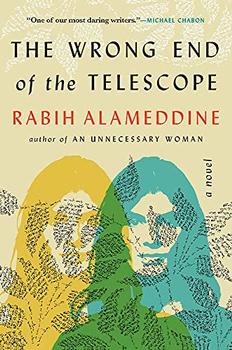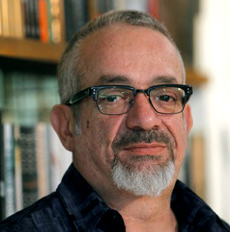Summary | Excerpt | Reviews | Beyond the book | Read-Alikes | Genres & Themes | Author Bio

By National Book Award and the National Book Critics' Circle Award finalist for An Unnecessary Woman, Rabih Alameddine, comes a transporting new novel about an Arab American trans woman's journey among Syrian refugees on Lesbos island.
Mina Simpson, a Lebanese doctor, arrives at the infamous Moria refugee camp on Lesbos, Greece, after being urgently summoned for help by her friend who runs an NGO there. Alienated from her family except for her beloved brother, Mina has avoided being so close to her homeland for decades. But with a week off work and apart from her wife of thirty years, Mina hopes to accomplish something meaningful, among the abundance of Western volunteers who pose for selfies with beached dinghies and the camp's children. Soon, a boat crosses bringing Sumaiya, a fiercely resolute Syrian matriarch with terminal liver cancer. Determined to protect her children and husband at all costs, Sumaiya refuses to alert her family to her diagnosis. Bonded together by Sumaiya's secret, a deep connection sparks between the two women, and as Mina prepares a course of treatment with the limited resources on hand, she confronts the circumstances of the migrants' displacement, as well as her own constraints in helping them.
Not since the inimitable Aaliya of An Unnecessary Woman has Rabih Alameddine conjured such a winsome heroine to lead us to one of the most wrenching conflicts of our time. Cunningly weaving in stories of other refugees into Mina's singular own, The Wrong End of the Telescope is a bedazzling tapestry of both tragic and amusing portraits of indomitable spirits facing a humanitarian crisis.
Concerned — as its title implies — with perspective, The Wrong End of the Telescope suggests that the grace and kindness people can show themselves and each other is not necessarily facilitated by understanding, and that it may even sometimes be best to resist the impulse to possess knowledge of the other, or of the mystery of life. With this book, Alameddine gives us a funny and sad tale that caters to no particular audience, that no one asked for, and that is all the more generous for it...continued
Full Review
 (738 words)
(738 words)
(Reviewed by Elisabeth Cook).
 In The Wrong End of the Telescope, Rabih Alameddine creates a character that appears to be a stand-in for himself, described from the perspective of the novel's narrator, Mina. Mina paints the character as a friend of hers who has written essays about his experiences with refugees as well as fiction. The author's real-life work parallels this description, and several comparisons can be drawn between his writing career and that of the writer in the story.
In The Wrong End of the Telescope, Rabih Alameddine creates a character that appears to be a stand-in for himself, described from the perspective of the novel's narrator, Mina. Mina paints the character as a friend of hers who has written essays about his experiences with refugees as well as fiction. The author's real-life work parallels this description, and several comparisons can be drawn between his writing career and that of the writer in the story.
After having spotted the Alameddine-like character in the novel, Mina's friend Emma tells her, "You sent me one of his books for Christmas, unreadable, worst gift ever. Why would I care about an old woman who doesn't leave her apartment? Didn't make any sense to me. That's not a story, ...

If you liked The Wrong End of the Telescope, try these:

by Jennifer Croft
Published 2025
From the International Booker Prize-winning translator and Women's Prize finalist, an utterly beguiling novel about eight translators and their search for a world-renowned author who goes missing in a primeval Polish forest.

by Hisham Matar
Published 2025
A luminous novel of friendship, family, and the unthinkable realities of exile, from the Booker Prize–nominated and Pulitzer Prize–winning author of The Return
Courage - a perfect sensibility of the measure of danger, and a mental willingness to endure it.
Click Here to find out who said this, as well as discovering other famous literary quotes!